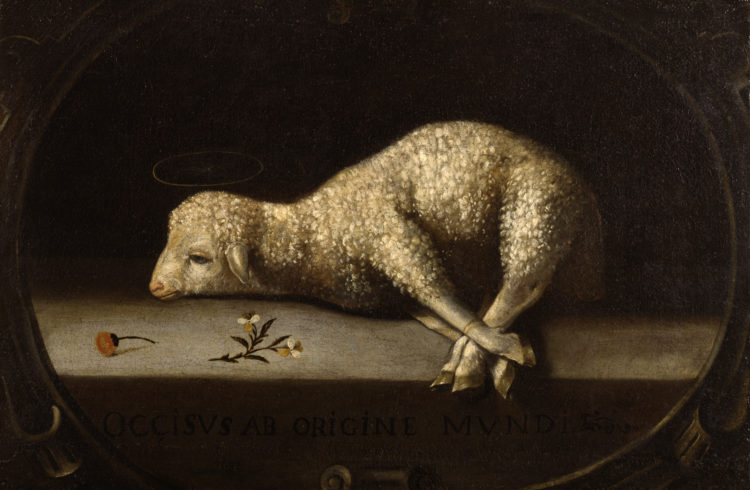The 2016 election cycle and the results on November 8th have been nothing short of apocalyptic for Christians. The End has come. What if embracing the results of the election” apocalyptically” can help shape us to be faithful witnesses in the days ahead?
We have to understand, of course, what that much-misunderstood word means.
What is an Apocalypse?
The word “apocalypse” is often used to leverage fear in order to rally people around a cause. Even when the word itself is not used, language about impending doom can be deployed to push people close enough to panic mode that they will be motivated to act in ways they would otherwise not act not under “normal” circumstances.
It’s true enough that some have handled this election apocalyptically in that sense of the word. Fears were stoked, and Christians were led to believe that the End was near. Some proclaimed that our vote this year was the most important vote there ever was, and this vote was our last, best chance to avoid a cataclysm of great (yet vague) proportions.
Interestingly, now that the dust is settling from the partisan brawl, some are rejoicing and others are mourning, but many are pulling away from these apocalyptic tones.
Evangelical voices from both sides of the aisle are inviting their constituents to settle down under (non-subversive) readings of 1 Peter 2:17 and Romans 13. These are calls to honor and pray for civic authorities – to go back to how things were before it was almost the end of the world. Curiously, almost no one is quoting Revelation. (Fellow Missio Alliance author, Dennis Edwards, provides an important exception to this observation in his article, “Life as a Minority and a Christian After the Election.”
Perhaps we are right to pull away from an apocalyptic posture grounded in fear, prepared to burn down the village and flee for the hills.
But that kind of apocalyptic is not the only, the best, or even the most biblical kind. It’s not the kind that has shaped the church’s imagination for millennia. It’s not the kind that helps us read Romans 13 in light of Revelation 13.
This election was apocalyptic in the sense that much has been revealed, uncovered and exposed about how the world actually is and who we actually are. The veil has been pulled back to reveal a grotesque image, shocking and distorted but also true.
This election was apocalyptic because the grotesque reality that unfolded is a sign of the End. Or better, it is a sign of how the End changes our posture in the present.
Now, in order to move forward post-election, we need this apocalypse because it allows us to examine everything that has been uncovered and then be transformed by a deeper, grander vision of how the world actually is. This is a vision of the End – of the suffering Lamb reigning over and remaking all things. Now, we remember that as worshipers of the Lamb we can live in the present in light of the End. This election was apocalyptic in the sense that it revealed how the world actually is. Click To Tweet
What Has Been Revealed?
During this election many Christians, especially the evangelical variety, have shown themselves to be quite desperate. That’s not necessarily a bad thing. Most of us don’t see our true selves until we get desperate – until we get backed into a corner or become so especially tired that we can no longer pretend to be the person we wish we were. Then, when we’re squeezed, the true self comes out.
These moments are not the exception to our true self, but are a revelation of who we actually are and what we actually believe deep in our guts. And nothing brings out the true self like not getting what we want.
Two Truths Revealed by the Election
So, what has been revealed about what we actually want and believe deep in our guts? From my perspective, two major points come to the surface.
Evangelical Imagination
Evangelical Christians in the US have little imagination for how the church inhabits the world as the church. The level of angst was palpable over which candidate was the better choice in the weeks leading up to the election. “How am I supposed to know who to vote for?” was the gut cry. Without a “good” candidate, we simply knew no other way to be political – no other way to address the systemic hurt and brokenness in our neighborhoods. (See Derek Vreeland’s article, “The Sky is Not Falling,” for more on this).
Unconscious Privilege
Many of us benefit from privilege in ways we’re not aware. This point unexpectedly became apparent to me nearing election day as the line “don’t worry about the results, God is in charge” began to buzz from well-meaning Christians. For many of us (myself included) those words came out a bit too easily and quickly. Perhaps I don’t have to worry because I’m well-off enough to absorb the blow. Plus, it’s easy to “honor the king” when the king acts in my interest. For many of us, the words “don’t worry about the results, God is in charge” came too quickly. Click To Tweet
Having the curtain pulled back on these realities (for the first time for some, but not for others) and shown to us in grotesque fashion allows us the opportunity to see with clearer eyes just what it means to live under the Lordship of the suffering Lamb.
We can continue to forsake our dependence on the State for our political imagination and instead embrace our identity as a peculiar community, witnesses of God’s presence in our neighborhoods. Those of us from the majority culture can continue to humbly confess that we are ignorant about how our privilege and power keeps us ensconced in the program of the State, blind to where God’s kingdom is breaking forth.
Living With the End in Mind
Christians do not fear the end because the end has already come in the life, death, resurrection, and ascension of Christ. The End is the reconciliation of all things in Christ, and that End breaks into the present every time we gather around the Table of God’s presence and feast on his victory.
This Table is not a theoretical space that supplements political commitments we made prior to arriving. It is, rather, a vision of a truer reality than the modern, liberal democracy of our age. It is a place of reorientation into the way of God’s kingdom. This Table is the starting point for our formation as witnesses of the suffering, reigning Lamb. It is the context where we learn how and where to participate in the reconciliation of all things.
On November 20, the church celebrated Christ the King Sunday, the last Sunday before Advent, the beginning of the new year on the Church Calendar. Among other things, the declaration that Christ is King is an apocalyptic affirmation. His Lordship over all things has been revealed, and we can surrender now to his reign, his peace, his righteousness, and his way.
Let this be a time to renew our commitment to living in the present in light of the End.









Missio Alliance Comment Policy
The Missio Alliance Writing Collectives exist as a ministry of writing to resource theological practitioners for mission. From our Leading Voices to our regular Writing Team and those invited to publish with us as Community Voices, we are creating a space for thoughtful engagement of critical issues and questions facing the North American Church in God’s mission. This sort of thoughtful engagement is something that we seek to engender not only in our publishing, but in conversations that unfold as a result in the comment section of our articles.
Unfortunately, because of the relational distance introduced by online communication, “thoughtful engagement” and “comment sections” seldom go hand in hand. At the same time, censorship of comments by those who disagree with points made by authors, whose anger or limited perspective taints their words, or who simply feel the need to express their own opinion on a topic without any meaningful engagement with the article or comment in question can mask an important window into the true state of Christian discourse. As such, Missio Alliance sets forth the following suggestions for those who wish to engage in conversation around our writing:
1. Seek to understand the author’s intent.
If you disagree with something the an author said, consider framing your response as, “I hear you as saying _________. Am I understanding you correctly? If so, here’s why I disagree. _____________.
2. Seek to make your own voice heard.
We deeply desire and value the voice and perspective of our readers. However you may react to an article we publish or a fellow commenter, we encourage you to set forth that reaction is the most constructive way possible. Use your voice and perspective to move conversation forward rather than shut it down.
3. Share your story.
One of our favorite tenants is that “an enemy is someone whose story we haven’t heard.” Very often disagreements and rants are the result of people talking past rather than to one another. Everyone’s perspective is intimately bound up with their own stories – their contexts and experiences. We encourage you to couch your comments in whatever aspect of your own story might help others understand where you are coming from.
In view of those suggestions for shaping conversation on our site and in an effort to curate a hospitable space of open conversation, Missio Alliance may delete comments and/or ban users who show no regard for constructive engagement, especially those whose comments are easily construed as trolling, threatening, or abusive.